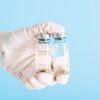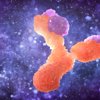Fritextsökning
Artiklar per år
Innehållstyper
-

”Din pappas testosteron var högre än ditt – men ingen berättar varför”
Flera studier visar att män i dag har lägre testosteronnivåer än sina fäder – oberoende av ålder, vikt och hälsa. Ändå saknar svensk primärvård tydliga riktlinjer för hur vi ska utreda och behandla manlig hormonbrist, skriver Khalid Kashwa, specialist i allmänmedicin och medicinsk chef, Specialistläkarhuset i Sundsvall.
-

The vaccine has saved 94 million lives – but measles is spreading again
A disease we once believed belonged to the past is now resurging in both Europe and the United States. In the shadow of growing skepticism and declining vaccination coverage, measles – which has claimed millions of lives throughout history – is making a comeback.
-

Lilly bygger tablettfabrik i Nederländerna
Efter att ha lanserat flera stora satsningar i USA under året vänder nu Eli Lilly blicken mot EU, och avsätter tre miljarder dollar till en ny tablettfabrik i Nederländerna.
-

Trögt för genterapi mot blödarsjuka – kan dumpas av bolaget
Roctavian, en genterapi mot blödarsjuka som sågs som ett medicinsk genombrott, har floppat kommersiellt. Nu planerar företaget bakom att avyttra läkemedlet från sin portfölj.
-

New findings on the diseases that crushed Napoleon’s army
As if cold, starvation, and typhus weren’t enough. New research reveals that Napoleon’s defeated army also suffered from paratyphoid fever and relapsing fever during the retreat from Russia.
-

Vaccine project targeting congenital infection scrapped in late-stage trial – “Clearly disappointed”
Hope for the first vaccine against the world’s most common congenital infection has taken a serious hit
-

Canada approves leqembi as global alzheimer’s drug race heats up
Leqembi has secured approval in Canada, further consolidating its global lead among disease-modifying Alzheimer’s therapies. The antibody is now authorized in 15 major markets — one more than its closest rival, Eli Lilly’s Kisunla.
-

Swedish life science is growing – but capital is not keeping up
The number of employees and companies in Swedish life science is increasing and the sector is more equal than many other sectors. But investments in unlisted companies are weak.
-

A cluster contribution to European life science innovation and competitiveness?
-

Strömhopp från Novos styrelse – extra stämma utlyst
Större delen av styrelsen i danska läkemedelsjätten Novo Nordisk hoppar av efter oenighet med huvudägaren Novo Nordisk Foundation.
-

Swedish team tests Alzheimer antibody for brain imaging
Recent breakthroughs in Alzheimer’s treatment have increased the need for precise diagnostics in the field. Researchers in Uppsala are working to develop improved methods for both identifying suitable patients and ensuring they receive the right therapy.
-

Gel mot håravfall lockar miljardinvestering
Det amerikanska bioteknikbolaget Pelage Pharmaceuticals väcker stort intresse med sin regenerativa kandidat mot ärftligt håravfall. Nu tar bolaget in 120 miljoner dollar, motsvarande omkring 1,1 miljarder kronor, för att gå vidare till fas III-studier nästa år.
-

Novo Nordisk köper antikropp – för miljardbelopp
Danska läkemedelsjätten Novo Nordisk har tecknat avtal med det amerikanska bioteknikföretaget Omeros Corporation om att förvärva och vidareutveckla en antikropp mot sällsynta blod- och njursjukdomar.
-

Gene therapy restored hearing in children with congenital deafness
Eleven out of twelve children with congenital deafness showed improvements in a study testing Regeneron’s gene therapy for hereditary hearing loss. The U.S. company now plans to apply for approval of the gene therapy.
-

How the Nobel discovery is used in drug development
Regulatory T cells keep the immune system in check, a discovery now awarded the 2025 Nobel Prize in Physiology or Medicine. Qiang Pan Hammarström explains how this finding is being applied in today’s drug development, and what challenges remain.
-

Many discontinue obesity medication – new study highlights the reasons
A new study maps out the most common reasons why patients choose to stop taking obesity medication prematurely. “Obesity medication discontinuation reverses health benefits and prompts weight regain in most individuals,” says Hamlet Gasoyan, one of the researchers behind the new study, in an interview with Life Science Sweden.
-

Sarah Lidé: ”Artificial intelligence must not replace authentic interactions”
Artificial intelligence must never become a replacement for authentic, even if messy, interactions with our fellow humankind, Sarah Lifé, Deputy CEO at Medicon Village Innovation, writes in a column.
-

Enkelt test kan förutsäga leversjukdom - ”Bygger på tre enkla blodprover”
Ett blodtest, utvecklat av forskare vid Karolinska institutet, kan förutsäga risken att utveckla allvarlig leversjukdom, enligt en ny studie
-

Genmab to Acquire Dutch biotech for USD 8 Billion
Danish pharmaceutical company Genmab has agreed to acquire Dutch firm Merus, a developer of cancer therapies, for USD 8 billion, equivalent to nearly SEK 75 billion.
-

Phase III win for Hansa Biopharma: “We Are Thrilled”
Swedish biotech Hansa Biopharma’s transplant drug imlifidase has met the primary efficacy endpoint in a registration-enabling Phase III study in the United States.
-

Astra Zeneca’s asthma drug nears approval for sinus inflammation
Astra Zeneca’s drug Tezspire receives positive opinion from the European Medicines Agency (EMA) for the treatment of chronic rhinosinusitis with nasal polyps.
-

Därför är SEO inte dött: “Viktigare än någonsin”
AI förändrar hur vi söker information – men grunden för att synas på nätet är densamma. För bolag inom biotech och life science är SEO särskilt viktigt: "Förtroende är avgörande för att nå rätt målgrupp", säger Caroline Danielsson på Brath.
-

Första läkemedlet mot förlossningsdepression får grönt ljus i EU
EU-kommissionen har för första gången godkänt ett läkemedel mot förlossningsdepression, närmare bestämt amerikanska Biogens Zurzuvae.
-

Heart Monitoring in Breast Cancer – Essential or Excessive?
Trastuzumab and related drugs have transformed breast cancer treatment and dramatically improved survival rates. But the close cardiac monitoring required during treatment can be a heavy burden for both patients and healthcare systems. Dr. Andri Papakonstantinou is working to refine how doctors identify which patients truly need intensive follow-up.